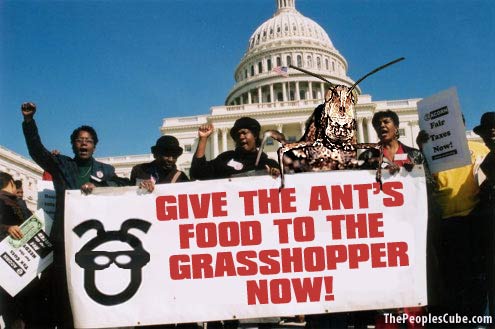
Editorial by Dr. William L. Pierce, National Vanguard magazine, Issue No. 83, Survivalism: Response to Racial Chaos . . .

This document appears to have been written by Dr. Pierce in 1985 or 1986, meant to inform and inspire certain National Alliance members to think about moving to West Virginia to become a part of his Cosmotheist Church Community. (See Dr. Pierce’s White Zion speech from September 1984.)HISTORY: The Cosmotheist Community began in 1974 as a religious discussion group which met weekly in the homes of interested persons in the Washington, D.C., area. These persons shared a concern for the fundamental values and goals — or lack thereof — on which the directions being taken by modern, American society depend. They felt that materialism, egoism, and a lack of any sense of responsibility to the future had become . . . Continue reading Prospectus for a New Community . . .
Our Community Speech by by Dr. William L. Pierce, September 1984 Having to live around non-Whites — having to work with them every day, being exposed to Jewish propaganda non-stop — is not just intimidating and demoralizing in the sense of sapping hope and enthusiasm: it is spiritually debilitating. It can infect us with wrong values. It can distort our attitude toward our work, and it can undermine our adherence to our principles. And the longer we have to work in order to reach our goal, the more urgent this particular consideration becomes. For five years, or even ten years, any person with a little backbone can grit his teeth, shut out most of the poison, and . . . Continue reading White Zion, Part 2 . . . Jewish Survival Strategies Speech by Dr. William L. Pierce, September, 1984 Some 4,000 years ago, in certain parts of the world, there were nomadic tribes who made their living from their flocks of sheep and goats. They lived on goat’s milk and goat’s cheese; they killed and ate a sheep occasionally; they sheared their sheep for wool; they made sandals and wineskins and other utensils from their animals; and they followed their flocks from one place to another in search of grass as the seasons changed. The nomadic life was a hard life. And it was a life with no past and no future. There was nothing permanent in the lives of the . . . Continue reading White Zion, Part 1 . . . |
||
|
Copyright © 2024 The Legacy of Dr. William Pierce - All Rights Reserved Powered by WordPress & Atahualpa |
||
Recent Comments